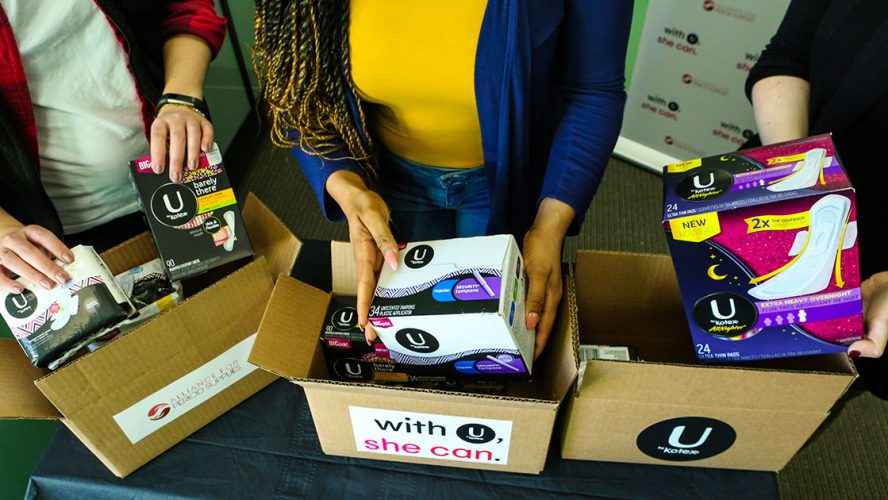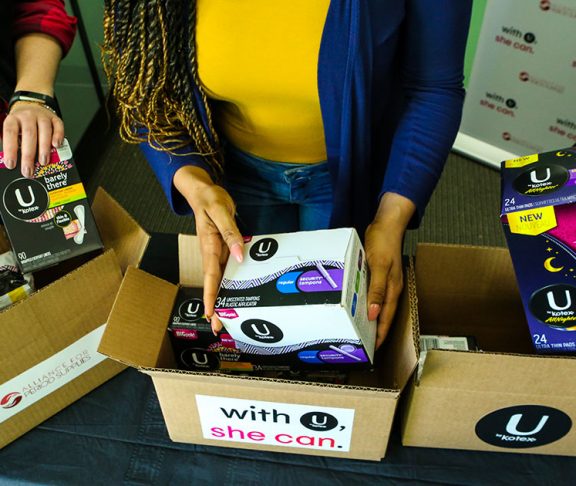Transformational change is happening in the U.S. today in terms of how our society openly talks about periods. Younger generations are no longer willing to hide periods behind colorful euphemisms or sneak off to restrooms with product in hand to manage basic bodily functions. The new decade offers the promise of ending period stigma once and for all.
Period poverty
However, for people living in poverty, stigma remains deeply tied to their period. Research from U by Kotex finds that 1 in 4 women surveyed struggled to purchase period products in the past year due to lack of income. This is known as period poverty. Not being able to meet one’s own basic needs can lead to shame and despair. These feelings can prevent individuals in need from asking for help to get the period products they need to remain clean and healthy.
1 in 5 low-income women reported missing work, school, or similar events due to lack of access to period supplies. Because of an inability to obtain basic necessities, women are sacrificing crucial life events and losing professional or educational opportunities. Period poverty gives rise to feelings of embarrassment, disappointment, and depression.
Accessibility
Most public restrooms worsen the issue of period poverty as they are not stocked with free period products. Imagine the public outcry if offices or schools refused to provide free toilet paper for restrooms. Like toilet paper, period products are basic material necessities required to maintain good health and hygiene. Making free period products readily available in all public restrooms is a simple solution to help end period poverty.
The stigma of not being able to afford the products necessary to manage their periods prevents many menstruators from seeking help. Of women who reported struggling with period poverty, only 4 percent knew about community-based period supply banks that provide free period products. The Alliance for Period Supplies and our more than 75 allied programs do just that. We collect, store, and distribute donated period products and get them to people in need.
We also are leading open and honest conversations surrounding menstruation. Transformational change is underway to end period stigma and period poverty. If you’re interested in getting involved with the Alliance for Period Supplies or our local partners through the With U She Can program, visit UByKotex.com or AllianceforPeriodSupplies.org for more information.

